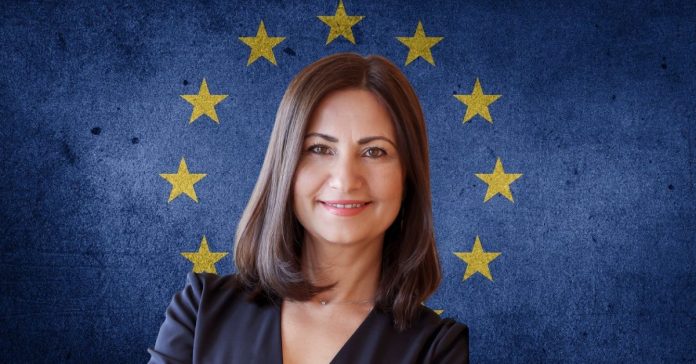European Commissioner for Innovation, Research, Culture, Education and Youth, Iliana Ivanova, stated that the European Union should consider private funding to fill the gap in science and innovation funding, currently estimated at €100 billion a year, according to Euractiv.
Bulgaria’s Ivanova took up her post as EU Commissioner last June after her predecessor Mariya Gabriel left to return to Bulgarian politics.
The commissioner admitted she was “disappointed” that EU governments decided in February to cut €2.1 billion from the budget of the EU’s flagship Horizon Europe programme to fund other priorities.
“I said it many times that I’m not particularly happy about this fact, but I understand that the big picture required decisions where we had to fund urgent issues.”
Ivanova revealed that the first thing she wanted to do when she found out she would take the portfolio was to determine what amounts were available. Horizon Europe has a budget of almost 100 billion euros for the seven-year EU budget period.
But the other question I immediately asked is, yes, but what are our needs. OK, we have €100 billion, but how much do we need. And there we see that for the last over 20 years we have had a deficit of about €100 billion per year in funding for science and innovation.
The Commissioner further stated that the EU should follow the US model of successfully raising private capital to fill the funding gap.
“It can be seen that Horizon Europe, with €100 billion for seven years, has no way to fill a deficit that is €100 billion per year. If America is successful, this can be explained by the large percentage of private venture capital. The market in America is about six to seven times bigger in risk financing than in Europe.”
Ivanova explained that if investment in R&D was calculated as a percentage of GDP, the target, to which all developed countries aspired, would be 3 per cent.
We [the EU] are under, around 2.26%, plus or minus a few points over the years, but overall well behind that target.
She expressed some optimism about the work of the European Innovation Council, which supported start-ups through patient capital to minimise risk for private investors.
“It can already be seen that the latest numbers bring me quite a bit of optimism. Because let’s not only be critical, let’s also say the good things when there are. Over €2 billion have already been invested by the European Innovation Council.”
When asked if the European Parliament was an ally, she answered very positively.
We are already hearing numbers, on several occasions MEPs have publicly called for doubling the budget of Horizon Europe for the next financial framework.
Asked what her plans are in the context of the political crisis in Bulgaria, a country that is preparing for its sixth snap election in just a couple of years, she responded that she is concentrating on her work in Brussels. She also expressed the hope that Commission President Ursula von der Leyen would win a second term.
